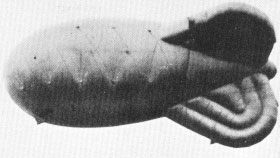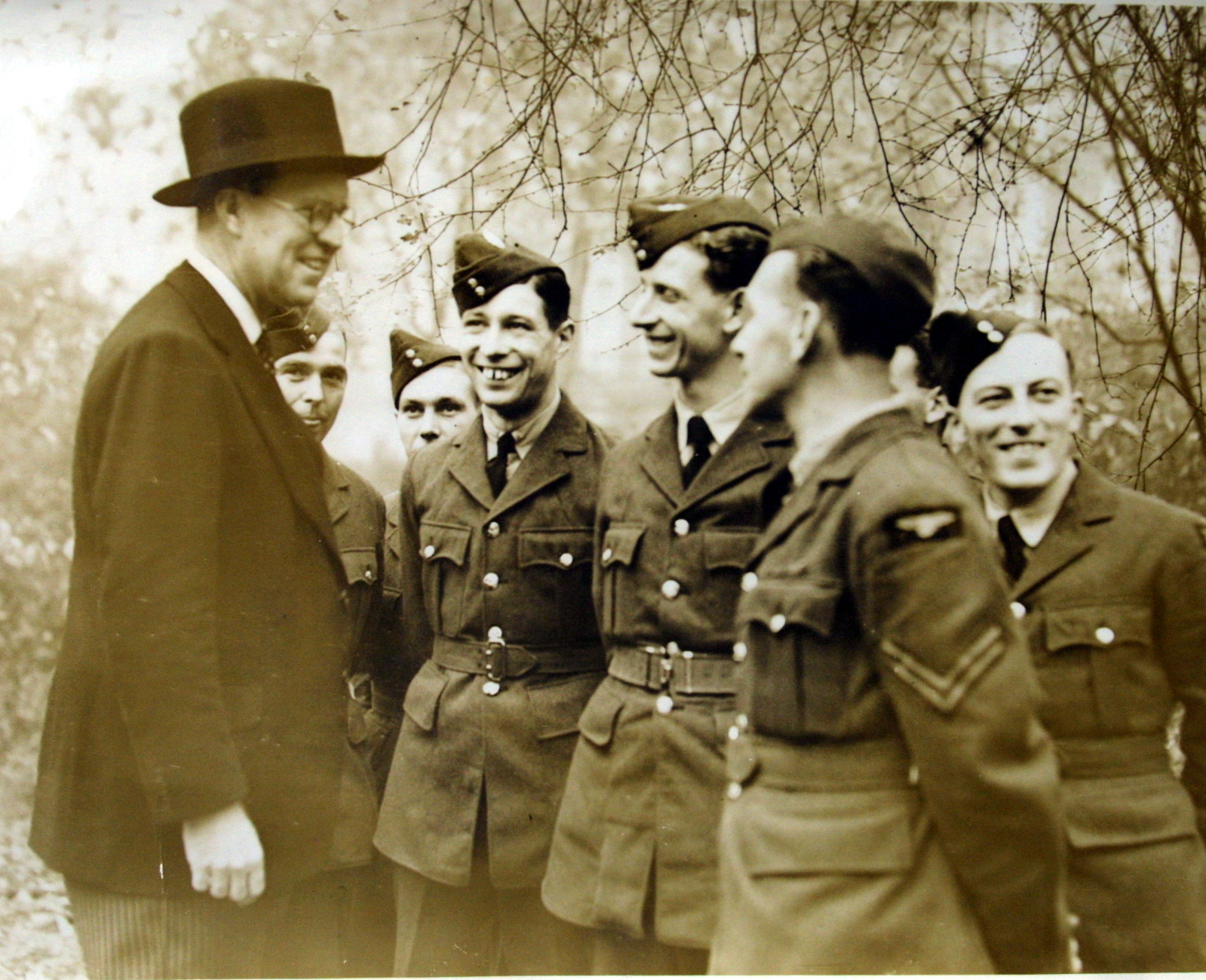 Click
for Site Directory
Click
for Site DirectorySenator Joe Kennedy Inspects London Bomb Damage
This is a picture taken in London during the second world war in 1940 and it shows The American Ambassador at the time, Joseph Kennedy,
(father of President John F Kennedy) talking to a group of barrage balloon operatives after an air raid and discussing the bomb damage with them.
He then flew to America to report directly to President Roosevelt. Do you know any of these men? Do you remember this incident? They certainly
seem pleased to meet him and one can assume he was doing the politicians job of saying encouraging things to them.

He was described as a pessimistic person and when he returned to the U.S.A. the press was of the opinion that his message to the American
people was that Britain was unlikely to win the war against the Nazis.
Kennedy was sympathetic with the Allies, but the press he had entertained grave and groundless trepidations as to the success of the British measures. Thus White House had conflicting reports from other Ambassadors like Mr William Bullitt in Paris and sent Mr. Sumner Welles to investigate.
Britain did not want to accentuate the differences in the views of those who claimed friend of the British. But the singular mental disparity
between the American Ambassador in Paris and Kennedy in London was something which had created more than a psychological interest.
Just before Mr William Bullitt left Paris to take running trip to his home country, he was asked frankly to state what what he was going to tell his
countrymen when he landed in the U.S.A.
Don’t you worry about that, my dear chap,” came his smiling reply, am going to tell them what I tell all my French and English friends—the Allies
have got the Germans beaten already. No nation bereft of a moral foundation can ever win in the long run. Germany has no such basis; France and
England are built upon the impregnable rock of human freedom. They stand for the living principle in existence, Germany for the dead and
corrupting hand of barbarity; and that is why the Allies must survive.” Joseph Kennedy, on the other hand, came back from America with the
conviction that America, under no circumstances, would enter this war, and that throughout Europe no country neither Spain, Portugal, nor Italy,’
desired to be embroiled. All the world,” he said in effect, “ has the same mentality as the English as at the time of Munich; no people want to
fight.” And therein the gulf between the two Ambassadors opinions was laid out, for Munichism is merely insensate postponement; the deferring of
the inevitable day of reckoning until it is too late. Bullitt was right but in 1940 a considerable number of Americans wanted an isolationist policy
and paraded around with placards demanding that the U.S.A. not get involved with the European war. Little did many of them realise that Japan
was planning to annihilate the American Navy at Pearl Harbour and by luck failed to achieve that.